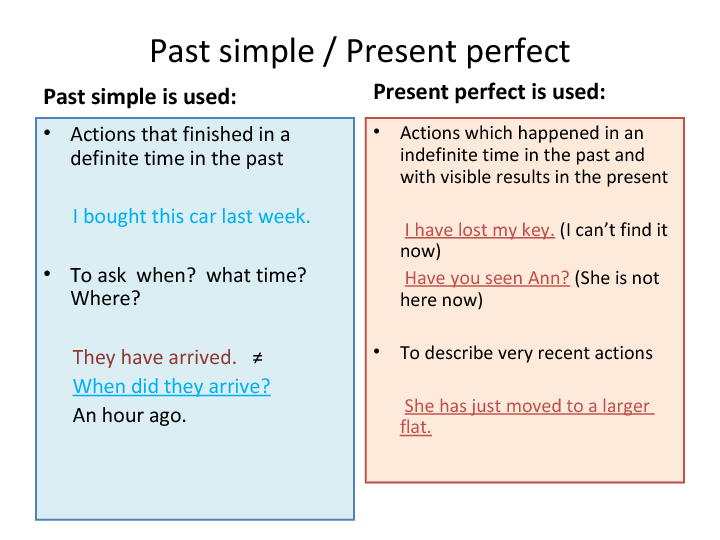We can tell actions that ocurred in the past and we don't want to specify the moment, or that they began in the past and continue in the present (moment of speaking). That is called present perfect. The following is an example of how to use it in real situations. Pay attention that the verbs are not in simple past form.
We have regular verbs which only need to have -ed after the base form of the verb, but we also have a lot of cases we must memorize. Here we have two options for learning common verbs. It's better if you learn the three forms of the same verb + the meaning. For today, we are using the past participle form.
https://wordwall.net/resource/1062774/angielski/past-simple-irregular-verbs-1
https://wordwall.net/resource/22000708/english/regular-or-irregular-verbs-past-simple
https://www.liveworksheets.com/qf834990zt
All these verbs are commonly used in the present perfect tense. Let's check that topic so you can practice the regular and irregular verbs in past participle in different situations.
Present perfect: Grammar Present perfect: When to use
https://learnenglishkids.britishcouncil.org/grammar-practice/present-perfect-experiences
https://www.mes-games.com/animals4.php
https://wordwall.net/resource/9870650/card-10-past-simple-and-present-perfect
For instance: I have lived in Costa Rica for 10 years. I moved with my family in 2012. We have bought a lot of plants for our house; those plants have grown so nice that I'm amazed.









